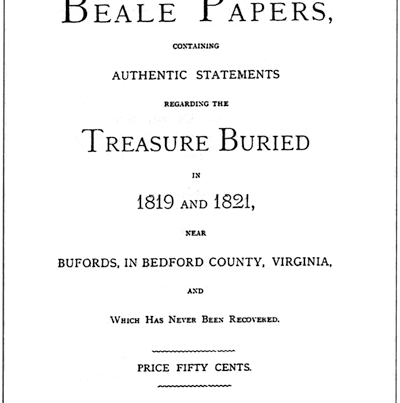I, thankfully, studied history and political theory at a Southern university at a time not that long ago when those predisposed to a more classical Southern worldview could hold those positions in class. We would be challenged, yes. We had professors who were more liberal than we were, naturally, but as long as we could well defend our positions, we could at least agree to disagree. There might be razing to the point of heated discussions, but we could generally agree the role of education and rhetoric was twofold: an open exchange of ideas so that truth could be discerned and ascertained with the end result that graduates who were critical thinkers and could be launched into the world with a well rounded basic knowledge and skills that would help them in their careers and to productively contribute to society in whatever field or manner of life they chose to pursue thereafter.
This, sadly, is no longer the case on many universities and colleges, even in the South itself. In fact, some major universities in the South have been completely taken over by a strange cadre of non-Southern liberal elites and self-hating Southerners who have bought into Wokeism, Critical Race theory, and the panoply of other ideologies and ideas that are completely foreign to anything that would have been remotely acceptable, or even understandable, to a vast majority of Southerners, whether highly educated or not, even 10 years ago. I was back home a while back to visit and personally witnessed a family of very well behaved African-American fans at a recent football game in the South being physically escorted out of the stadium by armed security for the sole crime of waving rebel flags because the mascot of this particular institution is still, in fact, the Rebels. Southern hospitality still has the decorum not to handcuff a mother and her four year old for so dread a crime as wearing fan paraphernalia.
After witnessing this surreal incident and vowing never to return to this football stadium until such time as Sports Crimes against Wokeism are repealed at this august institution, I began doing some heavy thinking on how we got to this point in the United States and in the South in particular. While I no longer reside in the South, I still consider myself a Southerner. I still believe the regional tradition and institutions of Southern culture and philosophy have many things to offer to remedy the ills not only of this country and the world at large. As I suspected, diagnosing the regional factionalism and disconnecting world view of traditional Southerners from our Northern cousins is a deep historical chasm into which ink has been poured by the gallons over the centuries, going at least as far back as the Colonial times.
In my research, I ran across a book I had encountered many years ago as a young history student. I was unimpressed with the work at the time, and only read it at the recommendation of my history advisor as a “work of historic importance” in understanding the South. While this professor was more liberal minded than I, he was still of that old school Dixiecrat mindset that had a sympathy and respect for the Southern tradition. He is now gone on to his reward in the great academy in the sky, and would nowadays be likely considered fairly moderately conservative by Progressive University standards. The book he recommended to me was W. J. Cash’s The Mind of the South.[i]
I was initially enthusiastic to read the tome, as it was purportedly written by an actual Southerner. These were the last days of card catalogs before the modern internet age. If one wanted to know what a book said, or what the critical reviews of the book were, you actually had to either read it yourself or dig around in the bowels of the library to find critical reviews. To my disappointment at the time, and again as I reread it recently, I found the book to be full of paradigms and flowery intellectual language from the typical early 20th Century type Southerner who largely felt the psychological need to be accepted by his Northern intellectual peers. As such, Cash tries to map out what “The Southern Mind” historically believed and then attempts to psychoanalyze this hypothetical mind using the Freudian psychological method that was all the intellectual rage at the time the book was published in 1941. Gail Jarvis wrote an excellent piece going into more detail on this in another Abbeville Institute piece back in 2014.[ii]
What stuck out to me when re-reading this book by W.J. Cash some 20 years after I encountered it as an undergraduate was why my professor had initially told me it was “a work of historical importance.” With the advent of the internet search, I was able to much more easily access reviews of the work, some of which were surprisingly recent. One review I found from a TIME magazine blog clued me in immediately why it had become such a classic in liberal academia:[iii] W.J. Cash had pulled the classic academic bait and switch that the liberal media and academics were still fawning over to this day. He simply baits the audience into believing that he is an authority on all things Southern, and then when the audience bites, he switches the analysis into a florid and fictitious composite of what he asserts is the singular “Southern Mind.” Then, with this Frankenstein creation in hand, he blames the monster of his own creation for all the ills and idiosyncrasies of Southern society as he sees them in order to make the South an understandable equation for his Northern elitist friends he is trying to impress.
Much in the same way as Hillbilly Elegy had been all the rage as a best seller and movie a few years ago, the author was a Southerner who felt the need to trash Southern culture by gussying up the hatchet job with flowing academic garments and pop culture psycho-babble. While it is unseemly nowadays to talk badly (or even objectively) about other groups that are not your own, you can get around that if you trash talk your own people. When a Southerner talks bad about Southern life particularly when simply regurgitating the talking points that Northern elites have made for decades, that Southern author becomes the cause célèbre to those Northern and academic elites because he has unwittingly made their case for them, and to this day, W.J. Cash’s The Mind of the South is still cited as a standard.
There have been critiques of W.J. Cash’s work by fellow Southerners over the years since its publication. The best I have read thus far in my research is an article published about five years later in the Southern Review by Donald Davidson.[iv] The article is entitled, “Mr. Cash and the Proto-Dorian South.” Davidson correctly picks up on a particularly vague turn of phrase that W.J. Cash uses as a motif several times in his book. Davidson notes that with classic intellectual sophistry, Cash denigrates the historical “mind of the South” as being stuck in a Proto-Dorian worldview, and this is what has led to all manner of supposed ills in Southern culture and life. Davidson’s critique is that Cash never clearly defines what the term ‘Proto-Dorian’ actually means but uses it in the following way:
Mr. Cash uses it primarily to describe the paradox, so troublesome to social historians, under which, in the Old South, aristocracy and democracy not only flourished blithely side by side but fused and rendered each other mutual support.[v]
The Encyclopedia Britannica describes the origins of the actual Dorian (or Doric) people in the following way:
In Greek tradition, the Dorians were thought to have gained their name from Doris, a small district in central Greece. According to this tradition, the sons of Heracles, the Heraclidae, were driven from their homeland in the Peloponnese by Eurystheus of Mycenae. The Heraclidae took refuge with Aegimius, the king of Doris. Several generations later, the Heraclid brothers Temenus, Aristodemus, and Cresphontes led the “Dorians” back in a successful invasion of the Peloponnese and thus recovered their heritage.[vi]
What is of particular interest to Southern scholars is that same article captures precisely the historical analogy W.J. Cash was likely trying to evoke when he labels the Southern Mind as Proto-Dorian. One need only remove the references to Dorians and various Greek civilizations and replace them with Southerners, Colonial indigenous tribes, and American states, and one has a concise synopsis of Cash’s view of the Southern Mind as “Proto-Dorian”:
The invading Dorians had a relatively low cultural level, and their only major technological innovation was the iron slashing sword. The Dorians swept away the last of the declining Mycenaean and Minoan civilizations of southern Greece and plunged the region into a dark age out of which the Greek city-states began to emerge almost three centuries later.[vii]
In all this research on Southern history and W.J. Cash’s influential if wrong-headed analysis of the Mind of the South, I cannot escape the juxtaposition of a famous work of literature by Irish writer, Oscar Wilde. The Picture of Dorian Gray was originally a short novella that was published in 1890 and later expanded into a full length novel the next year. The novel created such a public outcry at the time that Wilde never attempted writing another full length novel.
The novel tells the tale of the aptly named Dorian Gray, a hedonistic young man who makes a devil’s bargain. A portrait is painted of him, and for the price of his soul, the young man goes and lives a profligate life of sin and debauchery, and while his physical body never ages, his reflection in the portrait ages and begins to reflect the condition of his soul. Dorian Gray descends into libertine madness that eventually ends in his committing murder. In a final fit of rage, he takes the knife and destroys the painting of himself. With the painting destroyed, Dorian Gray’s physical body is restored to its natural and grotesque appearance. His servants find his body and do not even recognize the hideous countenance of their dead master in all his gruesome depraved vainglory.
The fact that Wilde chose the name Dorian for his main character is likely not coincidence, as the Greek Dorians were historically viewed as hedonists that brought depravity, violence, and darkness to the bastion of all things culturally Greek and enlightened. The chance that Wilde chose a surname of Gray, the same color of the Southern Confederate uniform is likely happenstance, and yet an astute Southern mind cannot escape the irony.
I would actually argue that Dorian Gray is the perfect analogy for Southern historians like W.J. Cash and Southern politicians who feel the need to be relevant and accepted by non-Southern groups like the mainstream media or woke University elites. So willing are they to sell out their Southern soul and heritage for a bowl of Esau’s pottage that they enter into a devil’s bargain that gives them unnatural long life and beauty in the eyes of the academic ivory tower or the political halls of Washington. Instead of aging with the dignity of a distinguished Southerner true to the traditions that might aid our current ills, their true soul descends into libertine madness and distortion to the point than when they die, no one recognizes them as Southern. Like W.J. Cash, they are simply another corpse that has been sacrificed to the Molech of globalist elitism, as they find that the true Proto-Dorian endarkenment of the West has come not from the Southern Tradition but the siren call of a dying, secular West.
*********
[i] https://archive.org/details/mindofsouth00cash
[ii] https://www.abbevilleinstitute.org/the-accommodating-mind-of-wilbur-cash/
[iii] https://swampland.time.com/2009/09/16/the-mind-of-the-south/
[iv] https://archive.org/details/davidson-proto-dorian-south/mode/2up
[v] Davidson, Donald (1947). “Mr. Cash And The Proto-Dorian South”: Southern Review, pg. 5. https://archive.org/details/davidson-proto-dorian-south/page/4/mode/2up
[vi] Editors of the Encyclopedia Britannica (1998, June 20), last updated by Tikkanen, Amy (2017, Dec. 19). “Dorian, people.” Encyclopedia Britannica online. https://www.britannica.com/topic/Dorian
[vii] Ibid.







Excellent article; it reminds me of “The Good Southerner.” I’ll remember not to read “The Mind of the South.”
I often read that “New England’s madness” eventually ensnared all of the Union save the States of the South. The “City on the Hill” moralists originally consider everyone else in the Union inferior to themselves in both mind and morals but as their cancer spread, they turned their rage upon that part of the country that they could not “invade” (without war, that is), the South. The rest of America was sold their version of that section, that is that Southerners were stupid, brutal and inferior. Even today, those who learn of the intelligence of the antebellum Southerner are surprised to see that what they had believed for so long is simply not true. For those Southerners in academia seeking the favor of their Northern brethren, I understand that they had to diminish the glory of their own people in order to fit into the New England version of history from which we continue to suffer. Those in the South who, after the war, believed that the Union blessed by George Washington could be restored were, in fact, wrong. The mind of (most of) the country had been eternally poisoned against the South and we are seeing that crime being played out today.
“I can’t stand it anymore and I don’t even know what “it” is.”
Cash’s words shortly before he committed suicide.
In addition to the above, readers might enjoy Bruce Clayton’s biography of Cash, along with THE MIND OF THE SOUTH: FIFTY YEARS LATER, edited by Charles Eagles. In addition, James C. Cobb’s “Does ‘Mind’ Still Matter? The South, the Nation and The Mind of the South, 1941-1991” in the November ,1991 issue of THE JOURNAL OF SOUTHERN HISTORY is superb; he thoroughly covers the contrasting receptions to Cash’s work over several decades.
For what it’s worth, I love The Mind of the South. Because it’s not really a scholarly source with footnotes, bibliography, etc I’ve always just tried to appreciate it as a book of prose.
I came across this blog post searching for “Proto-Dorian” – I was not disappointed. Thank you for breaking that down. Your first sentence and first paragraph really are gold. Hopefully open discourse will be tolerated at some university somewhere, once again. Would be curious to know if you’ve written more than just these two blog posts here?
I’m reading ‘Born Fighting’ by Jim Webb. Would be curious to hear your thoughts on it.
-A northerner (but an open-minded one, who seeks out the exchange of contrary ideas and points of view)